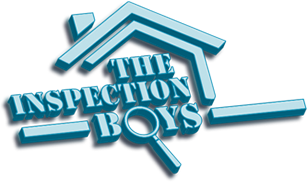In a world where property transactions are booming, the role of the modern home inspector has evolved into that of a guardian, a sentinel of trust in the real estate market. As prospective buyers and sellers seek transparency and confidence in their transactions, the demand for meticulous property evaluations has never been higher. Welcome to the realm of home inspection – a field that not only safeguards investments but also offers a pathway to entrepreneurial success.
The Home Inspection Industry
The home inspection industry has undergone a remarkable transformation in recent years. Beyond being a mere formality, home inspections have become a critical step in the real estate process, bridging the gap between sellers aiming to present their properties in the best light and buyers seeking a thorough understanding of their potential investment. Home inspectors have emerged as the torchbearers of transparency, offering unbiased assessments that empower clients to make informed decisions.
The growth of the real estate market, coupled with increased consumer awareness, has elevated the importance of the home inspection industry. This surge in demand is not merely a trend; it reflects a fundamental shift in the way property transactions are conducted. Today, home buyers and sellers alike recognize the value of an objective evaluation that goes beyond the surface, delving deep into the heart of a property.
The Viability Factor
Aspiring entrepreneurs often seek business ventures that hold promise not only in the present but also for the foreseeable future. Herein lies the allure of the home inspection industry – a sector with a trajectory that aligns with the ever-evolving dynamics of the real estate market. The viability of a home inspection venture is rooted in several key factors.
1. Rising Demand: The real estate market is characterized by constant flux, but the need for reliable property assessments remains constant. Homebuyers want assurance, and sellers desire a competitive edge. This unending demand provides a stable foundation for a home inspection business.
2. Consumer Awareness: In an age of information, consumers are more informed than ever before. Homebuyers and sellers are proactive in seeking professional guidance to make well-informed decisions. A home inspection business taps into this growing awareness, offering expert insights that resonate with discerning clients.
3. Regulatory Landscape: Many regions and jurisdictions mandate home inspections as part of property transactions. This regulatory framework further solidifies the relevance and importance of home inspection services, ensuring a steady stream of potential clients.
4. Trust and Credibility: Establishing trust is paramount in the real estate industry. A reputable home inspection business can build a strong reputation for credibility, objectivity, and integrity, which translates into a loyal client base and word-of-mouth referrals.
5. Business Flexibility: Home inspection ventures offer flexibility in terms of business model and scale. Entrepreneurs can choose to operate as solo practitioners or build a team of inspectors. Additionally, diversification into related services, such as energy audits or pest inspections, can broaden revenue streams.
The viability of a home inspection business is not solely dependent on the current market conditions but is underpinned by its alignment with broader trends and consumer preferences. As the real estate landscape continues to evolve, the role of the home inspector remains an integral aspect of the transaction process.
In the next section, we’ll delve into the essential components of establishing a home inspection business, including the foundational requirements and key considerations for aspiring entrepreneurs.
Building Your Home Inspection Business
Business Essentials
As the foundation of your entrepreneurial journey, understanding the essential elements of a home inspection business is crucial. Here, we explore the key factors that contribute to the successful establishment of your venture:
1. Education and Training: Before embarking on your home inspection venture, ensure you have the necessary education and training. Many regions require home inspectors to complete specific courses or certifications. Invest in quality training programs to gain the expertise and knowledge needed to excel in the field.
2. Licensing and Certification: Obtain the required licenses and certifications in your jurisdiction. A valid license not only demonstrates your professionalism but also instills confidence in your clients. Clients often seek qualified inspectors to ensure a thorough and accurate evaluation of their property.
3. Business Structure: Choose a suitable business structure, such as a sole proprietorship, LLC, or corporation. Each structure has its advantages and implications, so consult with legal and financial professionals to determine the best fit for your goals.
4. Insurance Coverage: Secure liability insurance to protect yourself and your clients in case of unforeseen issues. Professional liability insurance provides a safety net in case errors or omissions occur during the inspection process.
5. Tools and Equipment: Invest in the necessary tools and equipment for conducting comprehensive home inspections. A well-equipped home inspector can offer more accurate assessments and stand out in a competitive market.
Navigating Market Opportunities
The success of your home inspection business is intricately tied to your ability to identify and leverage market opportunities. Understanding your potential clients and their needs is key to attracting and retaining customers:
1. Target Audience: Define your target audience, including homebuyers, sellers, real estate agents, property investors, and more. Tailor your marketing and service offerings to cater to the unique needs of each segment.
2. Networking and Partnerships: Build strong relationships with real estate agents, mortgage brokers, and other industry professionals. Networking can lead to referrals and collaborations that expand your client base.
3. Comprehensive Services: Consider offering specialized services beyond traditional home inspections, such as energy audits, indoor air quality assessments, or termite inspections. Diversifying your offerings can broaden your appeal and revenue potential.
Marketing and Branding
An effective marketing strategy is essential for showcasing your expertise and attracting clients. Develop a compelling brand identity that conveys professionalism and trustworthiness:
1. Online Presence: Create a professional website that highlights your services, qualifications, and customer testimonials. A well-designed website is often the first point of contact for potential clients.
2. Content Marketing: Share informative content related to home maintenance, buying/selling tips, and industry insights. This positions you as an authority in the field and can attract organic traffic to your website.
3. Social Media Engagement: Utilize social media platforms to engage with your audience, share valuable content, and showcase your expertise. Visual platforms like Instagram can be particularly effective for showcasing before-and-after photos.
4. Client Testimonials: Positive reviews and testimonials from satisfied clients can significantly influence prospective customers. Encourage clients to leave feedback and share their positive experiences.
Financial Considerations
Understanding the financial aspects of your home inspection business is crucial for long-term sustainability and growth:
1. Pricing Strategy: Determine your pricing structure based on factors such as property size, location, and additional services offered. Research the market to ensure your rates are competitive while reflecting the value you provide.
2. Budgeting and Expenses: Create a comprehensive budget that accounts for start-up costs, ongoing expenses, marketing efforts, and professional development. Monitoring and managing your finances will contribute to the profitability of your business.
3. Scaling and Growth: As your business gains traction, explore opportunities for scaling and expansion. This could involve hiring additional inspectors, expanding your service offerings, or targeting new geographic areas.
Client Relationships
Fostering strong client relationships is at the heart of a successful home inspection business:
1. Communication: Effective communication is essential throughout the inspection process. Clearly explain your services, address client questions, and provide detailed reports in a timely manner.
2. Professionalism: Maintain a high level of professionalism in all interactions with clients, from the initial consultation to the post-inspection follow-up. Your demeanor and conduct leave a lasting impression on clients.
3. Transparency: Be transparent about your findings, even if they may not be what clients were hoping to hear. Honesty builds trust and positions you as a reliable source of information.
4. Continued Engagement: Stay engaged with past clients by sending follow-up emails, newsletters, or occasional updates about home maintenance tips. This ongoing connection can lead to repeat business and referrals.
Overcoming Challenges
Launching and running a home inspection business comes with its own set of challenges. From managing client expectations to handling unexpected situations, here are some strategies for overcoming common hurdles and maintaining professionalism:
1. Client Discrepancies: Sometimes, clients may have differing expectations about the scope of your inspection. Maintain clear communication from the outset and provide detailed explanations of what your service entails. Address any discrepancies with professionalism and empathy.
2. Handling Criticism: It’s essential to be open to feedback, even when it’s critical. Respond constructively to client concerns and use feedback as an opportunity for improvement. Demonstrating a willingness to listen and address issues can enhance your reputation.
3. Time Management: Balancing multiple inspections, report writing, and administrative tasks can be challenging. Implement efficient scheduling and time-management techniques. Use digital tools to streamline appointment booking and reporting processes.
4. Navigating Complex Properties: Some properties may present unique challenges due to their size, age, or design. Prioritize continuing education to enhance your knowledge and skills. Be transparent with clients about any limitations or additional services required for complex properties.
5. Dealing with Difficult Clients: Occasionally, you may encounter challenging or demanding clients. Practice active listening, remain patient, and address their concerns professionally. Your ability to handle difficult situations can showcase your professionalism and dedication.
Technological Advancements
Embracing technological advancements can revolutionize your home inspection business and enhance the quality of your services:
1. Inspection Software: Utilize specialized inspection software to create digital reports with detailed descriptions and images. This streamlines the reporting process and offers a professional touch.
2. Drones and Cameras: Drones and high-resolution cameras can provide aerial views and capture hard-to-reach areas, enhancing the accuracy and comprehensiveness of your inspections.
3. Thermal Imaging: Thermal imaging cameras detect temperature variations and moisture issues, revealing hidden problems that may not be visible to the naked eye.
4. Mobile Apps: Develop a user-friendly mobile app for clients to schedule appointments, access reports, and communicate with you. This convenience can set your business apart and improve customer satisfaction.
Looking Ahead
The future of the home inspection industry holds exciting prospects and opportunities:
1. Sustainability Focus: As environmental awareness grows, home inspectors may play a role in assessing properties for energy efficiency and sustainability.
2. Smart Home Inspections: With the rise of smart home technology, inspectors may need to assess integrated systems and connectivity.
3. Remote Inspections: Advances in technology could lead to remote inspections using augmented reality tools, allowing inspectors to assess properties from a distance.
In a world where informed decisions are paramount, the role of a home inspector remains pivotal. By combining expertise, professionalism, and technological innovation, aspiring entrepreneurs can forge a successful path in the realm of home inspection. As you consider the potential of this viable business option, remember that your passion for property assessment can lead to a rewarding and prosperous journey. Embrace the challenges, stay adaptable, and embark on your entrepreneurial venture with confidence. The world of home inspection awaits, ready to be explored by those who dare to inspect profits and uncover success.

